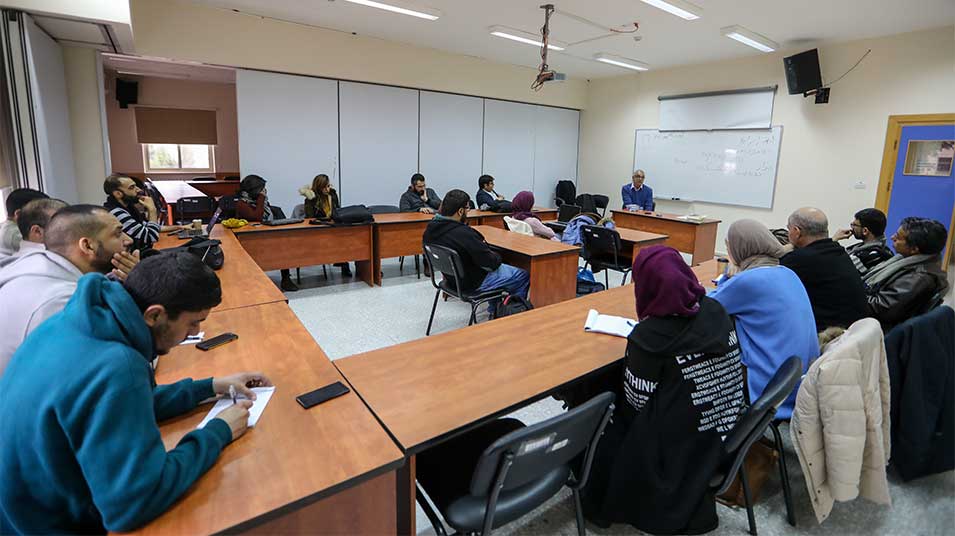Lecture presents a new reading of “The Iron Wall”
The Israeli Studies Master’s Program in the Graduate Studies Faculty at Birzeit University organized a public lecture that explored a new reading of the essay “The Iron Wall (We and the Arabs),” by Ze'ev Jabotinsky.
The lecture, held on January 15, 2018, was delivered by Dr. Nabih Bashir, a visiting scholar at Birzeit University, and facilitated by the director of the Master’s Program in Israeli Studies, Dr. Munir Fakher Eldin.
Dr. Fakher Eldin highlighted the program’s efforts in disseminating information “on the Israeli practices and system of thought to the general public,” saying that this constituted one of the program’s most important missions.
Dr. Bashir began his lecture by reviewing the events that preceded the First Zionist Congress, which was held in Basel, Switzerland, in 1879. He said, “A real crisis for the Jewish minority in Europe came about after the French Revolution. They were persecuted, murdered, imprisoned, and banished from most of Europe.”
“Most Jews at that time called for a cultural autonomy, a solution which 90% of the Jews in Europe were in consensus on.”
Dr. Bashir then moved to the focus of his lecture, Jabotinsky’s “The Iron Wall.” He observed that “Ze’ev Jabotinsky took a different route from the politics of his time. He released a paper which outlined his thoughts on racial-cultural features that are shared by a certain people, and argued that the Jews were able to preserve these features for hundreds of years.”
“’The Iron Wall,’” Dr. Bashir further observed, “most studies argue, is military might. In other words, it is the ability to defend the settlements and overall functions of the state. Others argue that it is to be understood as more of a ‘dam’ that would deflect the effects of Islam and the Arab culture.”
A different understanding was presented by Dr. Bashir. He argued that the “Iron Wall” text can be understood as a strategy that requires the Arabs’ complete desperation in order to make an agreement. He said, “Jabotinsky thinks as such: ‘In order for the Arab to make peace with me, he has to hold no power whatsoever. Only after he is rendered powerless could such an agreement be made.’ This is the current strategy of the Israeli Labor Party.”
Dr. Fakhir Eldin explored how these strategies connect to Hegel’s dialectics, “These policies are similar to the ‘politics of recognition,’ and therein lies the danger. Jabotinsky’s essay makes use of the ‘master–slave dialectic,’ and by extension, the fact that one has to submit to the other and recognize his as the master.”








